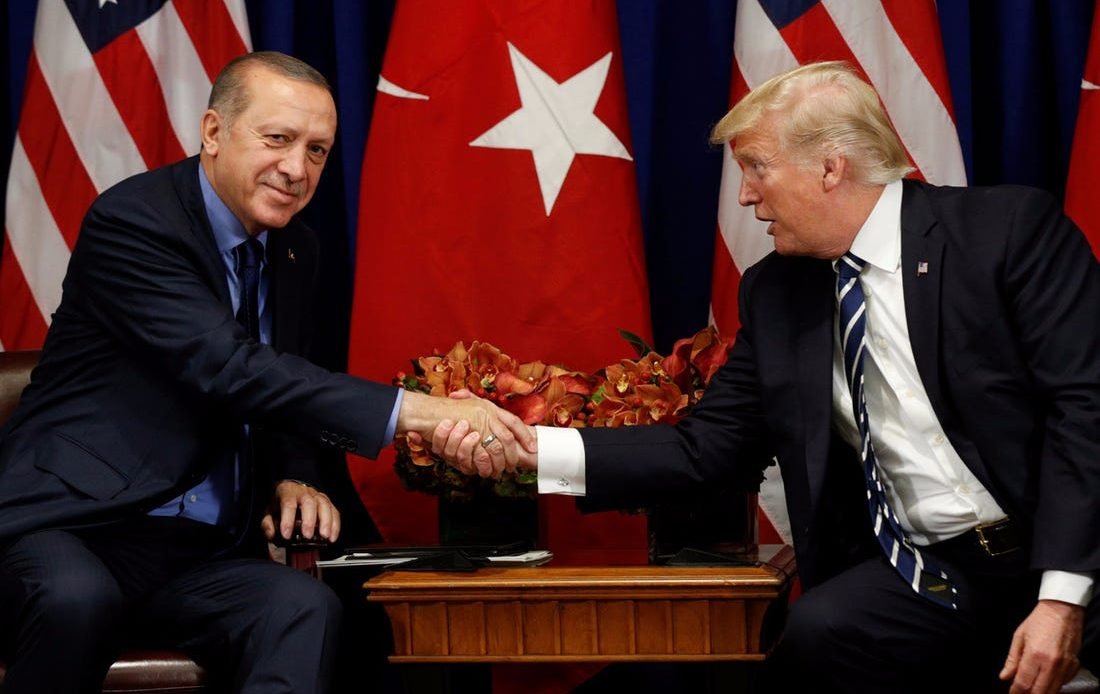Earlier, amid repeated claims by President Trump that Washington would be “securing” and “keeping” Syria’s oil, US media reported that as many as 800 US troops would be kept in the war-torn country to keep the black gold out of the hands of both Daesh (ISIS)* and Damascus, the oil’s legitimate owner.
US claims to Syria’s oil fields are absolutely illegitimate and have no basis in international law, Turkish Foreign Minister Mevlut Cavusoglu has said.
“They [the US] acknowledge and openly state that they are present there [in Syria] because of oil fields. No one has a right to Syrian resources. They came here, travelling across thousands of kilometers, and said ‘We will evaluate the oil fields of this country’. This contradicts the norms of international law,” Cavusoglu said, his remarks quoted by the A Haber tv channel.
President Trump: ‘I Like Oil, We’re Keeping the Oil’
In recent weeks, US President Donald Trump has repeatedly stated that the US would be “keeping the oil” of Syria, with Pentagon Chief Mark Esper confirming that the US mission in Syria will now be to prevent the country’s oil stocks from falling into the hands of either terrorists or the Damascus government.
The statements were made as the US had pulled troops out of areas of northern Syria, including near sensitive areas between Kurdish-controlled areas and the Turkish border, shortly before Turkey began an operation in northern Syria targeting both Daesh* and Kurdish militias, whom Ankara also classifies as terrorists.
Trump’s remarks on oil have led to criticism, both in the US and abroad, about how Washington’s policy may violate international laws against pillaging, with Syrian President Bashar Assad recently praising Trump for at least being straightforward about the “criminal” nature of US policy against his country.
The Russian foreign ministry along with Iran have condemned the US seizure of Syria’s oil, stressing that this resource belongs to the Syrian people and that Damascus should be in control of its own national wealth.
This week, anonymous US officials told AP that up to 800 US troops may be kept in Syria to ‘protect’ oil fields in Syria’s northeast, including in the oil and gas-rich province of Deir ez-Zor. Later, amid criticism of US policy, a Pentagon spokesman told reporters that the revenues from Syrian oil under US control would go to its Syrian Kurdish allies.
Syria has never been a major energy power, particularly compared to its Iraqi and Gulf neighbours, but did enjoy energy independence, and was capable of producing between 100,000 and 350,000 barrels of oil per day for export throughout the 1990s and 2000s, with this oil contributing upwards of 20 percent of state revenues. The country’s energy production was cut by over 90 percent thanks to the foreign-backed civil conflict which began in 2011, and hundreds of millions of dollars of crude has been illegally smuggled out of the country in the years since, including by Daesh and by the US and its allies.
Erdogan Heading to Washington Next Week
Turkish President Recep Tayyip Erdogan, who met with Russian President Vladimir Putin in Sochi last month to hammer out a deal to stop Turkey’s incursion into northern Syria, is expected to head to Washington on 13 November to speak with President Trump, with the talks expected to focus on the Syrian crisis.
Turkey launched an invasion of northern Syria on 9 October. About two weeks later, Russia and Turkey reached a deal facilitating the withdrawal of Syrian Kurdish militants to 30 km from the Turkish-Syrian border areas in exchange for a halt to the Turkish military operation.



